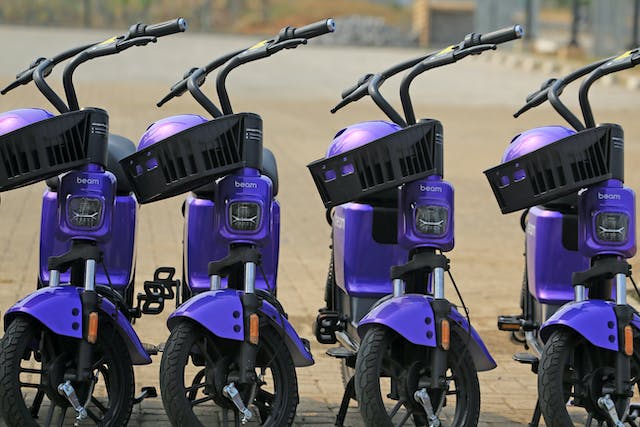The Revolution on Two Wheels: Exploring Electric Scooters
In an era where urban mobility and sustainability are at the forefront of our collective consciousness, electric scooters have swiftly become the darlings of the streets. These sleek, eco-friendly machines are changing the way we commute, offering a convenient, efficient, and eco-conscious alternative to traditional forms of transportation. In this blog, we will delve into the electrifying world of electric scooters, exploring their origins, benefits, and the impact they are having on our cities.
The Rise of Electric Scooters
Electric scooters are not a new invention; they have been around in various forms for decades. However, the current electric scooter phenomenon can be traced back to the early 21st century. It was companies like Bird, Lime, and Spin that introduced the concept of shared electric scooters to the public. These companies strategically placed fleets of electric scooters in cities, allowing users to rent them through smartphone apps. This created a new era of micro-mobility.
Benefits of Electric Scooters
- Eco-Friendly: One of the most significant advantages of electric scooters is their eco-friendliness. They produce zero emissions, making them a greener alternative to cars and even public transportation.
- Cost-Effective: Electric scooters are generally more affordable than owning a car or even using ride-sharing services. Their low operating costs and minimal maintenance requirements make them a cost-effective option for daily commuting.
- Convenience: Electric scooters are incredibly convenient. They are lightweight, easy to maneuver, and can be parked virtually anywhere. This makes them ideal for short trips, reducing traffic congestion and promoting cleaner air in cities.
- Health Benefits: Riding an electric scooter provides a light workout, as it engages the core muscles and improves balance. It’s a fun way to incorporate physical activity into your daily routine.
- Reduced Traffic Congestion: With more people adopting electric scooters, we’re seeing fewer cars on the road during rush hours. This reduction in traffic congestion leads to smoother traffic flow and less time spent commuting.
Challenges and Controversies
While electric scooters offer numerous benefits, they have not been without their share of challenges and controversies. Some common issues include:
- Safety Concerns: Accidents and injuries are a significant concern, especially when riders do not adhere to safety regulations, such as wearing helmets and following traffic rules.
- Cluttered Streets: In some cities, electric scooters have been criticized for cluttering sidewalks and public spaces. Poorly parked scooters can obstruct pedestrian pathways and create accessibility issues.
- Regulatory Challenges: Many cities have had to adapt their regulations to accommodate electric scooters. Striking the right balance between fostering innovation and ensuring public safety has proven to be a complex task.
- Maintenance and Lifespan: Electric scooters used for shared mobility services often have a short lifespan due to wear and tear. This can lead to high maintenance costs and sustainability concerns.
The Future of Electric Scooters
Electric scooters have come a long way in a short time, and their future looks promising. As technology advances, we can expect to see improved battery life, enhanced safety features, and increased durability. The expansion of electric scooter networks into more cities worldwide will continue, leading to a broader adoption of micro-mobility as a sustainable mode of transportation.
